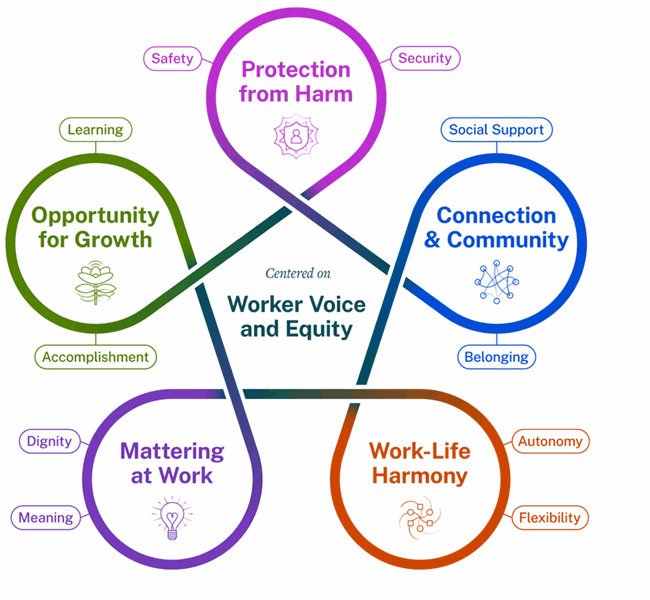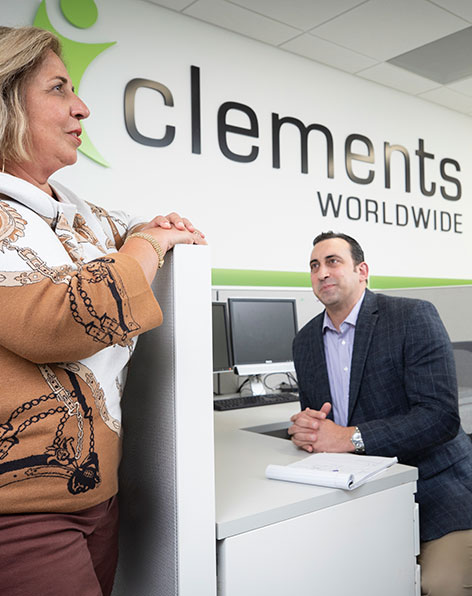Organizations
International NGO Recruitment Strategies: Attract & Retain the Top Nonprofit Employees

How NGOs Can Hire for Impact and Build a Committed Workforce
As an international NGO operating in diverse areas around the world, you face unique challenges, particularly when it comes to recruiting and retaining top talent. From limited budgets to navigating complex operating environments, managing risks, and cultural diversity, attracting, and retaining the right employees can be an uphill battle.
By implementing the practical strategies and considerations in this article, you can significantly improve your NGO’s appeal and recruitment process. This will not only help you attract and retain a committed team with the skills and passion to fuel your organization’s mission, but also ensure its continued success and impact.
In This Guide:
- Build Your Brand Around Your Mission
- Invest in the Professional Growth of Your Workforce
- Create a Supportive Workplace Culture
- Stand Out with Competitive Benefits
- Operating and Recruiting in High-Risk Environments
- Effective Recruitment Strategies for Diverse Locations
- Streamline Processes from Recruitment to Onboarding and Beyond
- Empowering Your Workforce, Protecting Your Mission
While a high turnover rate isn’t unique to NGOs specifically, it is a major barrier to recruitment. A Personio Foundation’s survey of 1,100 NGOs from 115 countries found that 52% of NGOs have a major problem with attracting skilled staff while 40% report a lack of HR tools and resources.
Recruitment Strategies for Nonprofits and NGOs
Of course, candidates who consider working for an NGO may do so thanks to a strong desire to help others, but they also highly value competitive salaries and robust employee benefits. Let’s look at innovative recruitment strategies you can use to offer much more than fair salaries and align with the expectations of top talent. Inspire your employees with comprehensive benefits, attractive perks, professional development, access to international healthcare networks, a supportive work environment, and more.
Don’t let limited resources limit your talent pool. Let’s look at strategies to attract and keep passionate employees:
1. Build Your Brand Around Your Mission
- Emphasize Your Mission and Purpose: The advantage your NGO may have against private-sector companies is the mission of your organization.
One study analyzing the career choices of NGO employees in India, published in the IOSR Journal of Business and Management, found most respondents were more motivated by the organization’s mission than monetary compensation:
“They have joined the sector with the motive of contributing to the society to work for social change.“
- Craft a Clear Brand Identity and Messaging: Develop a compelling brand identity and clear messaging that accurately communicates your organization’s mission, unique value points, goals, and impact your organization has on the communities you serve.
- This resonates with individuals who are passionate about your cause and are willing to invest their skills and expertise in making a difference.
- Highlight the unique opportunities your organization offers, such as professional development, meaningful work, and the chance to make a difference.
- Use this messaging consistently on your website, social media, all your communications, and other channels.
- Focus on Cause-Driven Recruitment:
- Highlight the impact and purpose of your nonprofit throughout your recruitment process, attracting candidates who resonate with your cause.
- Use storytelling techniques to connect on an emotional level and demonstrate the positive change the NGO is making in the world.
“… Gen Z respondents who indicated plans or hopes to leave their current roles [are] the leaders in seeking better alignment with their values (80%)… Millennials [are] the next-most-driven group about values (59%).“
Source: LinkedIn’s Workforce Confidence survey

- Showcase Impactful Work: Share success stories and testimonials from your staff and beneficiaries to showcase the impact your organization makes.
- Highlight the tangible impact and real-life success stories your NGO has achieved. Demonstrate the meaningful difference the organization makes in the lives of individuals or communities. This helps potential candidates connect with the purpose, significance, and rewarding nature of the work.
- Engage Your Current Staff: Involve your existing network of staff, volunteers, supporters, and alumni to spread the word about your job openings and attract passionate individuals who align with your mission.
- Speak with the current staff at your organization and ask what drew them to the NGO’s culture or mission. You can use this information to create a specific brand identity for recruitment.
- For example, your organization may have a compelling mission statement, a comprehensive benefits package, or clear opportunities for advancement.
- Engage in Talent Networking: Actively participate in industry events, job fairs, and networking opportunities to connect with top talent. Build relationships with universities, professional associations, and other relevant networks to establish your NGO as an employer of choice.
- Use Online Platforms: Utilize online platforms and social media channels to promote your organization and open positions, reaching a wider audience.
- Social media and professional networking sites help promote the NGO’s mission, work, culture, and job opportunities.
- Engage, join relevant groups, and share compelling stories to attract the attention of top talent.
- For example, the website Idealist is a social-impact job board with 1.3 million monthly visits where you can post job openings ranging from entry-level roles to director or executive positions for your NGO.
By implementing these strategies and tailoring them to your specific context, you can improve your chances of attracting and retaining the talent needed to fulfill your mission. Remember, your dedication to a just cause, coupled with a strategic approach to recruitment, can make your organization a magnet for passionate and skilled individuals.
2. Invest in the Professional Growth of Your Workforce
While NGOs may have limited financial resources, they can still provide non-financial benefits that attract talent.

- Offer Advancement and Professional Development Opportunities:
- Invest in training and development programs not only to enhance your employees’ skills but also to demonstrate your commitment to their growth and career advancement. This can attract talent seeking not just a job, but a meaningful career path aligned with their values.
- Outline the learning and clear career growth paths available within the NGO sector. This helps employees see a future within the organization. This encourages long-term engagement and reduces turnover as most individuals value the chance to develop their skills and make a difference in their careers.
According to NonProfit PRO, NGOs and nonprofits can offer opportunities for advancement as a way to entice current employees to stay with the organization:
“Allowing employees more opportunities to move up in the workplace is a good starting point. One benefit of hiring internally is that employees will see more career possibility within your organization.“
- Implement a Mentorship Programs: To support your NGOs mission to deliver impactful change, building a passionate and knowledgeable workforce is crucial.
- Connect employees seeking guidance with experienced staff with relevant expertise who also have a genuine desire to guide others.
- The mentorship program should have a clear structure and support both mentors and mentees throughout the process.
- Successful programs will ensure knowledge transfer, stronger teams, improved skills and confidence, boost cross-cultural understanding, and increase retention and engagement.
Navigate to Key Sections of This Guide:
- Build Your Brand Around Your Mission
- Invest in the Professional Growth of Your Workforce
- Create a Supportive Workplace Culture
- Stand Out with Competitive Benefits
- Operating and Recruiting in High-Risk Environments
- Effective Recruitment Strategies for Diverse Locations
- Streamline Processes from Recruitment to Onboarding and Beyond
- Empowering Your Workforce, Protecting Your Mission
3. Create a Supportive Workplace Culture
Create a positive work culture by nurturing a respectful and inclusive environment where all voices are valued, regardless of geographical location, position, or seniority.
“The job may be in your field, the commute may be great, or the pay package may be exactly what you are asking for — or more — but that isn’t good enough. It’s critical that the organization is a good fit with your values and offers a healthy workplace environment with effective leadership that will support and nurture you on your career journey.“
Michael McCarthy, instructor at Harvard DCE Professional & Executive Development, host of the “Happy at Work” podcast. (Source)
- Allow Flexible Work Arrangements: Promote work-life balance by offering flexible work schedules when possible. This will allow you to attract more diverse talent from a wider geographical pool.
- Work options such as remote work, flexible hours, 4-day work week, or part-time arrangements can be an attractive benefit for candidates seeking work-life balance, or those who have family, or other commitments.
- Recognize and Reward Employees: Acknowledge and appreciate the contributions of individuals and teams.
- Recognize achievements, milestones, and exceptional performance through rewards, incentives, or public acknowledgments. This boosts morale and enhances engagement and job satisfaction.
- Workload Support: Ensure manageable workloads and create a supportive environment where employees supported.
- Define clear roles and responsibilities for each staff member. This avoids confusion and ensures everyone understands their expected contributions.
- Regularly assess and address workload issues to prevent burnout and promote work-life balance. Establish a support system with check-ins to identify bottlenecks and adjust processes.
- Encourage staff to prioritize tasks based on their individual workload and available time. This allows them to focus on the most essential tasks and avoid feeling overwhelmed.
- Foster Transparent and Open Communication: Nourish an environment of open communication where employees feel valued and heard.
- Ensure that employees are well-informed about organizational changes, goals, and decision-making processes.
- Encourage feedback and suggestions from employees.
“Pulse checks can be a valuable tool for gauging employee sentiment and identifying areas for improvement. By fostering an environment of trust and open communication, nonprofits can better understand the needs of their employees and make adjustments accordingly. This helps create a more inclusive and supportive work culture that ultimately benefits the entire organization.“
Joan Garry, nonprofit expert and founder of the Nonprofit Leadership Lab

- Diversity, Equity, and Inclusion (DEI): Implement diverse hiring practices and create a supportive work environment that celebrates differences and stimulates a sense of belonging. This will not only attract talent but also contribute to retaining employees by making them feel supported and valued.
- Actively seek out diverse candidates during the hiring process and aim for diversity within the organization’s leadership positions. This helps ensure different perspectives and experiences are represented at all levels.
- Raise awareness about diversity, inclusion, and unconscious biases by providing training and workshops. This can help employees understand and appreciate different cultures, perspectives, and ways of working.
- Organize events and activities that celebrate diverse cultures, traditions, and holidays. This will create a sense of unity and appreciation for different backgrounds within the organization.
- Value open communication, teamwork, and employee well-being.
- Offer employee assistance programs and provide resources for managing stress and work-related challenges.
“Nearly 40 percent of respondents say they have turned down or chosen not to pursue a job because of a perceived lack of inclusion at the organization.“
Source: McKinsey survey
- Involve Employees in Decision-Making: Enhance their sense of ownership and commitment.
- Encourage participation in brainstorming sessions and cross-functional initiatives to encourage engagement and collaboration during the initial stages of decision-making.
- Form committees and task forces bringing together staff members to tackle specific issues or projects, allowing them to contribute directly to decision-making.
- Delegate authority for appropriate decisions to lower levels within the organization. You will be surprised by the impact on morale and how many people will step up to the task.
- Implement feedback mechanisms to collect feedback on proposed decisions and ensure their voices are heard throughout the process.
By implementing these strategies, NGOs can foster a diverse and inclusive culture that embraces and celebrates the unique perspectives and contributions of all individuals involved.
4. Stand Out with Competitive Benefits
While competitive salaries are important, they are just one piece of the puzzle when attracting and retaining top talent within the NGO sector. By offering a robust global insurance package that goes beyond simply medical insurance and includes disability benefits, life insurance, and more, can help NGOs demonstrate their dedication to their staff’s well-being. This, in turn, contributes to a more engaged, productive, and resilient workforce, ultimately boosting the impact of their vital missions.
Nonprofits offering tailored benefits saw a 33% higher retention rate than those with standard benefits packages according to a report by Nonprofit HR. A study by MIT Sloan found that:
“When it comes to predicting a company’s culture score, benefits are more than twice as important as compensation.“

- Offer Comprehensive and Flexible Benefits Packages: While financial compensation may be limited, consider offering a comprehensive benefits package to create a secure work environment. This will confirm for your employees that you care about their, and their loved ones’ well-being.
- This includes a comprehensive insurance package tailored to the needs of your NGO and staff. Your employees will appreciate having access to reliable health insurance, life insurance, disability coverage, workers’ compensation, personal accident insurance, kidnapping and ransom insurance, medical evacuation insurance, family and medical leave, and mental health resources.
- This can be crucially valuable for those working in high-risk environments.
- Conduct market research to understand industry standards and ensure that your NGO’s benefits packages are competitive within the industry and offer attractive benefits.
- Partner with a reputable international insurance broker like Clements to access comprehensive insurance plans that cater to the specific risks faced by your staff in different locations and challenging operational environments.
- Mental health support: Offering mental health resources as part of your benefits package demonstrates your commitment to your staff’s well-being, particularly those working in challenging environments. All Clements’ international group health plans can include enhanced benefits like Global Telehealth and IEAP services, which can provide much needed support.
- Recognizing the critical link between a healthy workforce and a thriving organization, the Surgeon General’s Framework for Workplace Mental Health and Well-being provides valuable resources and guidance to workplaces of all sizes and across industries, including NGOs.
- By implementing the recommendations outlined in this framework, NGOs can go beyond the traditional benefits package and create a work environment that actively promotes mental and emotional well-being.

Investing in a comprehensive benefits package can lead to a more engaged, productive, and resilient workforce, ultimately contributing to the organization’s success and its ability to achieve its mission.
Navigate to Key Sections of This Guide:
- Build Your Brand Around Your Mission
- Invest in the Professional Growth of Your Workforce
- Create a Supportive Workplace Culture
- Stand Out with Competitive Benefits
- Operating and Recruiting in High-Risk Environments
- Effective Recruitment Strategies for Diverse Locations
- Streamline Processes from Recruitment to Onboarding and Beyond
- Empowering Your Workforce, Protecting Your Mission
5. Operating and Recruiting in High-Risk Environments
Ensuring the safety and well-being of your staff is paramount and it becomes quite complex when you operate in high-risk areas, crisis situations, war zones, etc. Recruiting for these extremely challenging locations when your employees know the risks they will face, can be extraordinarily hard.
- Address Risks and Challenges Transparently:
- Be upfront with candidates about the potential challenges and risks they will face working in high-risk environments.
- Clearly communicate your organization’s safety protocols and commitment to employee wellbeing.
- Acknowledge the potential psychological challenges your team may face due to their work.
- Provide Ongoing Support:
- Consider offering hardship allowances, flexible working arrangements, and family support benefits.
- Offer access to mental health resources and support systems to ensure their well-being and resilience.
- Check in with your employees regularly to make sure they are ok.
- Protect Staff with Comprehensive Insurance Plans: Partner with an international insurance provider who specializes in international employee benefits and risk mitigation solutions.
- Offer enhanced and customized insurance plans that provide health insurance but also go further to protect your staff with medical emergencies and evacuation, kidnapping and ransom, personal accident, mental health support, and other relevant protections specific to your high-risk location and operating environment.
If you operate in a country with political instability or unsafe conditions, make sure you have procedures and policies in place, such as travel assistance, security plans, and insurance packages, such as international group health insurance, group life insurance, group personal accident, and additional specialized coverages to show employees you value their health and well-being.
Clements’ knowledgeable advisors would be happy to explore your specific needs and discuss your options. You can request a free consultation via this form.
While our policies are catered more to expats, depending on the location and circumstances, we may be able to offer some coverage to local nationals working for you.

Is a Full Medical Plan Too Expensive?
At Clements Worldwide, we have a long history of enabling international organizations to operate in high-risk areas, very often in crisis situations and during times of unrest, by finding and securing flexible international insurance solutions for NGOs.
For example, we understand the challenge where often insurance is a big expense for an NGO, but the welfare of your staff is still extremely important. As such a benefit rich medical plan may be too expensive, but at Clements we can offer a custom global Personal Accident solution that will ensure your staff have emergency medical cover in place at a fraction of the cost.
We’re happy to provide you with a free consultation about the global insurance options we offer for international organizations to help you provide fair and competitive nonprofit employee benefits.
6. Effective Recruitment Strategies for Diverse Locations
Operating in remote or high-risk areas can deter potential candidates due to safety concerns or limited access to resources.
- Build Local Partnerships: By forming partnerships in each country they operate in, NGOs can strengthen their appeal and offer opportunities to potential hires.
- Expand recruitment reach by collaborating with local NGOs, universities, development agencies, local recruitment platforms, and community groups to access talent networks, leverage shared resources, and attract top candidates.
- Partner for impact by creating joint initiatives or referral programs with other NGOs, academic institutions, or private sector companies to pool resources, share expertise, and attract talent collectively.
- Increase visibility by participating in relevant industry events and conferences to network, raise awareness about your organization, and showcase open positions.
- Cultural Competency:
- Research the local culture and learn about the area by following the local news and publications, reading books or articles, listening to podcasts, or looking for other resources.
- While creating a more diverse culture cannot happen overnight, you can take strategic steps to foster an inclusive workplace.
- For international operations, prioritize cultural competency in your recruitment process to ensure your team can effectively collaborate with diverse stakeholders and communities.
- Offer resource options to support the various learning styles to learn the local language quicker.
- Prioritize candidates with the necessary cultural understanding. It’s vital for NGOs and international nonprofits to cultivate diverse cultures. A diverse workplace that reflects the area in which you operate can help you attract quality candidates who want to feel welcomed and included within the organization.
- Hire Local Talent: Speak with local residents to study their beliefs and values to help you understand their backgrounds and local challenges.
- Seek out their input and involve them in decision-making processes, ensuring their voices are heard and valued.
- This approach can also help with making a more significant impact and even growing donor support.
“Several donors presently consider localization as the best strategy in crisis response in Cameroon and Africa, who have demonstrated a commitment to supporting local initiatives and capacity building.“
Bongwong Justin Berinyuy, Crisis response specialist in Africa (Source)

UNICEF’s case study on the impact of localization in emergency response in Burkina Faso highlights the benefits of a localization approach in humanitarian response. By focusing on empowering local communities, the “Rapid Response and Community Resilience” program improved coordination among different aid groups for a more effective response, increased capacity of local organizations to deliver essential services, and built stronger community resilience to future crises.
- Attract Specialized Skills: Many NGO positions require specific skills and experience, making it difficult to find qualified candidates.
- Clearly define skills and experience required for each role but be open to transferable skills from other sectors.
- Look beyond traditional qualifications and prioritize skills, experience, local knowledge gained through volunteer work or community involvement, commitment to your cause, and passion.
- Embrace the global talent pool by leveraging online platforms and professional networks designed specifically for the NGO sector. Consider partnering with local recruitment agencies for on-the-ground expertise.
- Launch Volunteer and Internship Programs: Partner with universities and vocational training programs to offer internship and volunteer opportunities, identifying potential talent looking to contribute to a cause. They can serve as talent pipelines and provide opportunities for candidates to gain relevant skills and experience.
7. Streamline Processes from Recruitment to Onboarding and Beyond
- Prioritize Effective Recruitment Practices: Streamline recruitment processes to be efficient and responsive.
- Clearly define job requirements and qualifications to attract the most suitable candidates.
- Focus on evaluating candidates’ passion, alignment with values, and potential rather than solely relying on experience.
- Optimize your recruitment process:
- Utilize online application systems and standardized interview procedures to ensure a smooth and efficient experience for candidates.
- Consider partnering with local recruitment agencies familiar with your sector.
- Utilize online platforms and job boards specifically catering to the NGO sector to reach a wider audience.
- Invest in HR Technology: Utilize applicant tracking systems (ATS) to streamline the recruitment process, manage applications efficiently, and improve candidate communication.
- Explore AI-Powered Tools: Learn about the potential of artificial intelligence (AI) for screening resumes, identifying potential candidates, optimizing job postings, onboarding, and benefits administration.
- Review and Update Policies and Practices:
- Regularly review and update your recruitment, onboarding, and employee management policies to ensure efficiency, compliance with local regulations, and other best practices.
- Ensure they are inclusive and supportive of diversity. This can involve reviewing recruitment processes, benefits packages, and performance evaluation methods to identify and address any potential biases.
- Develop a Structured Onboarding Program: Have an easy-to-follow plan that integrates new hires into your organization smoothly, facilitates cultural understanding, and equips them with the necessary skills and knowledge to succeed.
- Develop a Performance Assessment Framework: Implement objective and consistent processes for personnel decisions and merit-based rewards.
- While this is crucial for any organization, it presents unique challenges for NGOs due to difficulty in objectively measuring individual impact and limited resources for merit-based rewards beyond traditional methods like promotions and pay.
- Clearly communicate performance assessment approaches and available rewards.
- Create opportunities beyond traditional rewards. Offer leadership of special projects, new skills development, leadership responsibilities, and formal recognition and awards.
Empowering Your Workforce, Protecting Your Mission
Running an international NGO is demanding. Recruiting and retaining top talent while ensuring their safety and well-being can be complex. At Clements, we understand.
Partner with Clements:
We specialize in crafting comprehensive insurance policies specifically designed for NGOs operating in challenging environments.
- Experienced NGO Specialists: Our team has extensive experience navigating the complexities of international insurance for NGOs, including in high-risk locations.
- Customizable Coverages: From international health and life insurance to kidnap and ransom or medical evacuation coverage, we equip your organization to effectively manage risks and prioritize your staff’s security.
- Attract and Retain Talent: Demonstrate your commitment to employee well-being with robust insurance packages.
- Empower Your Impact: With your staff secure, you can focus on making a positive global difference.
Focus on your missions. Let Clements handle the risks.
Contact us today for a free consultation and let our experienced specialists design an insurance plan that safeguards your organization and empowers your workforce.
Together, let’s ensure your mission thrives.
Navigate to Key Sections of This Guide:
- Build Your Brand Around Your Mission
- Invest in the Professional Growth of Your Workforce
- Create a Supportive Workplace Culture
- Stand Out with Competitive Benefits
- Operating and Recruiting in High-Risk Environments
- Effective Recruitment Strategies for Diverse Locations
- Streamline Processes from Recruitment to Onboarding and Beyond
- Empowering Your Workforce, Protecting Your Mission

About Clements
Clements Worldwide specializes in understanding the unique risks faced by NGOs and tailors global insurance solutions to effectively mitigate those risks. Whether your NGO operates in high-risk countries or conflict zones, Clements Worldwide can provide the flexible protection you need to operate with confidence.
Clements is a trusted provider of international insurance for expats, diplomats, and organizations in over 170 countries. Since 1947, we have enabled millions of people and organizations to live and operate anywhere in the world.
Our relentless commitment to customer experience and expertise in crafting tailored insurance solutions enables us to serve individuals, corporations, government agencies, international schools, nonprofits, and NGOs with global aspirations. Headquartered in Washington, DC, Clements has a worldwide presence with other locations in London, Dublin, and Gibraltar.
Relevant Helpful Resources
Find tips, trends, and perspectives to help you confidently make decisions and navigate challenges internationally with peace of mind. Read how you can live, operate, and manage risks abroad.
The Need for Specialized Insurance: Why Mass Market Insurance Falls Short for High Net Worth Individuals
As a high net worth individual, you understand the immense responsibility
International NGO Recruitment Strategies: Attract & Retain the Top Nonprofit Employees
How NGOs Can Hire for Impact and Build a Committed Workforce
Minimizing Risk, Maximizing Impact: Critical Insurance Coverages for NGOs
When you’re running an international nonprofit or NGO of any size, the nonprofit